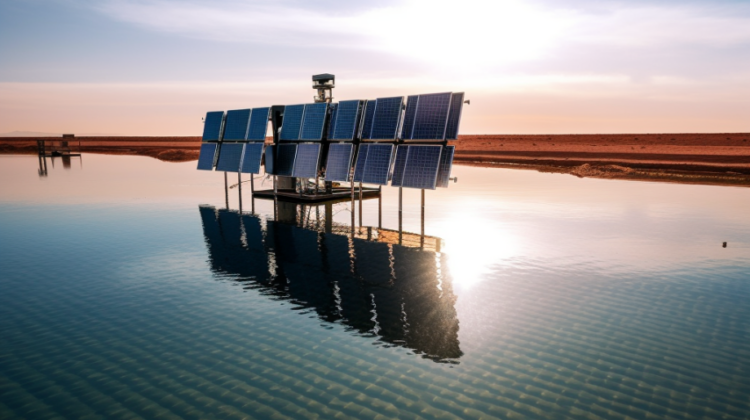
Solar power is not only a clean and renewable energy source but also plays a significant role in water conservation. With the increasing global demand for electricity and the growing scarcity of freshwater resources, exploring sustainable solutions that address energy and water challenges has become essential. This article will explore how solar power technologies contribute to water conservation and why they are crucial for a more sustainable future.
Solar-powered irrigation systems
One of the most impactful ways solar power saves water is through solar-powered irrigation systems. Traditional irrigation methods often rely on fossil fuel-powered pumps, which contribute to greenhouse gas emissions and consume large amounts of water. Solar-powered irrigation systems eliminate the need for fossil fuels and use photovoltaic (PV) panels to generate electricity. These systems allow farmers to pump water directly from rivers, lakes, or underground reservoirs without depleting groundwater reserves.
Solar-powered irrigation systems also offer enhanced control and efficiency. They can be equipped with smart sensors and automated controls that optimize water usage by monitoring soil moisture levels and adjusting irrigation accordingly. By reducing overwatering and ensuring targeted water delivery to crops, these systems minimize water wastage and promote sustainable agricultural practices.
Solar desalination plants
Desalination removes salt and impurities from seawater or brackish water to obtain fresh water. Conventional desalination plants often rely on fossil fuel-driven processes, which contribute to greenhouse gas emissions and require substantial amounts of water for cooling purposes.
Solar desalination plants harness the sun’s power to drive the desalination process. They utilize solar thermal technologies or reverse osmosis systems to convert seawater into freshwater without using fossil fuels. These plants significantly reduce energy consumption and eliminate greenhouse gas emissions associated with conventional desalination methods.
Solar desalination plants also offer a scalable and decentralized solution, particularly in arid regions or coastal areas with limited access to freshwater sources. By utilizing abundant solar energy resources, these plants can provide a sustainable and cost-effective means of meeting the growing demand for clean water.
Solar-powered water purification systems:
Solar power plays a crucial role in water purification, particularly in remote or off-grid locations with limited access to clean water. Solar-powered water purification systems use solar energy to power filtration and disinfection, ensuring safe drinking water without relying on external power sources or chemicals.
These systems typically employ solar stills or solar-powered UV disinfection units to remove contaminants and kill pathogens in water. Solar stills use the sun’s heat to evaporate water, leaving behind impurities and condensing the vapor to obtain purified water. Solar-powered UV disinfection units utilize ultraviolet light generated by solar panels to destroy bacteria, viruses, and other microorganisms.
By harnessing solar power for water purification, these systems offer a sustainable and reliable solution that reduces dependence on traditional energy sources and minimizes the use of chemicals. They can significantly improve access to clean water in developing regions and emergencies.
Solar power not only provides a sustainable and renewable source of energy but also offers significant benefits in water conservation. By utilizing solar-powered irrigation systems, desalination plants, and water purification systems, we can reduce water consumption, minimize reliance on fossil fuels, and promote sustainable practices. Embracing solar power technologies is crucial for building a more resilient and water-conscious future where energy and water resources are utilized efficiently and responsibly.

Leave a Reply